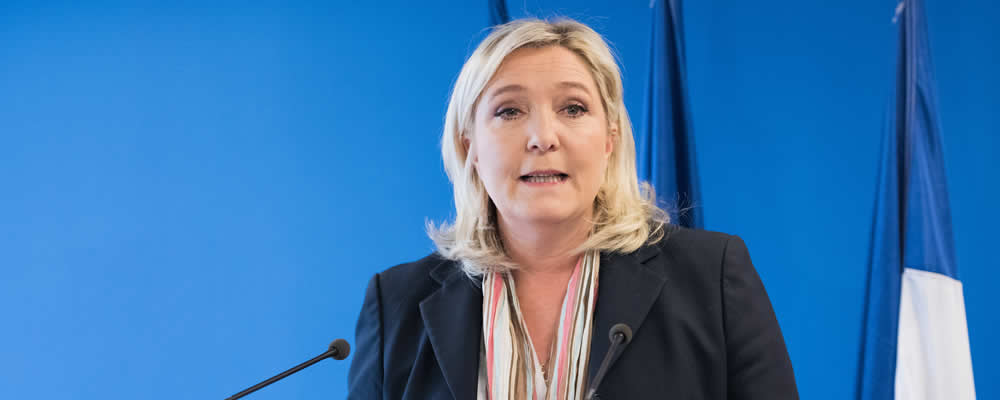The Euro fell even further against the Australian Dollar this morning as investors grow increasingly concerned that Marine Le Pen could cause a major upset by winning the French Presidential elections in May.
Le Pen has seen her support swell in recent weeks as security concerns following a number of terrorist attacks in France makes the anti-immigration policies of her National Front party increasingly appealing to voters.
While polls still currently place Le Pen behind independent front-runner Emmanuel Macron in the second round, Macron’s lead has rapidly fallen recently as his political opponents appear to direct most of their attacks towards him, whilst largely ignoring Le Pen.
While her opponents may be writing her off, investors are not so quick to do the same after the shock of both Brexit and Donald Trump last year, causing EUR AUD to weaken.
Le Pen also appears to be wooing female voters in France as women look to her as a fresh face in the male dominated world of French politics
As Nonna Meyer, a researcher at the Sciences Po institute in Paris, stated;
‘Women are the key, these women often abstain and now they are backing Le Pen to protect their jobs and their security.’
Le Pen is said to have gained the support of over two million additional female voters since her 2012 campaign, with Bloomberg forecasting that she could attract around 26% of the female vote at this year’s election.
However the Euro managed to recoup some of its losses this morning as Germany’s latest Business Climate data remained defiant in the face of rising political concerns, with sentiment unexpectedly rising.
IFO reported that Germany’s business confidence rose from 109.9 to 111.0 in February, beating expectations that it would fall to 109.6 as the recent uptick in Germany’s economy was able to allay fears of instability in the Eurozone.
Meanwhile the Australian Dollar’s rise has been supported by yet another increase in iron ore prices as Australia’s largest export climbed over 2% to reach $94.86 a tonne a new multi-year high.
Analysts are now forecasting that prices could break the $100 a tonne marker, a barrier it was unable to pass in 2014 when prices last surged as high.
The dramatic rise in prices has largely been driven by further rises in steel prices, as Metal Bulletin explains;
‘China’s spot rebar prices continued surging on Tuesday on the back of big gains in the billet market. The price of billet rose to its highest in four years. This gave a big boost to spot rebar prices.’
However with the weakening of Chinese commodity futures during Wednesday’s Asian session, demand for iron ore may finally start to run out of steam.
Looking ahead to tomorrow EUR AUD may rally further if Gfk reports that Germany’s latest Consumer Confidence data performed similarly well to today’s business survey, although analysts currently predict that sentiment is more likely to drop in March as it is pressured by the political uncertainty in the Eurozone.
However, an expected rise in Germany’s end of year GDP figures could still help the Euro rise tomorrow despite a lacklustre consumer survey, as growth is expected to have climbed from 1.5% to 1.6% in 2016.
Meanwhile Australia’s fourth quarter Capital Expenditure report could strengthen the Australian Dollar overnight as figures are predicted to rise from -4.0% to -0.5%.
Current Interbank Exchange Rates
At the time of writing the EUR AUD exchange rate was trending around 1.36 and the AUD EUR exchange rate was trending around 0.73.



